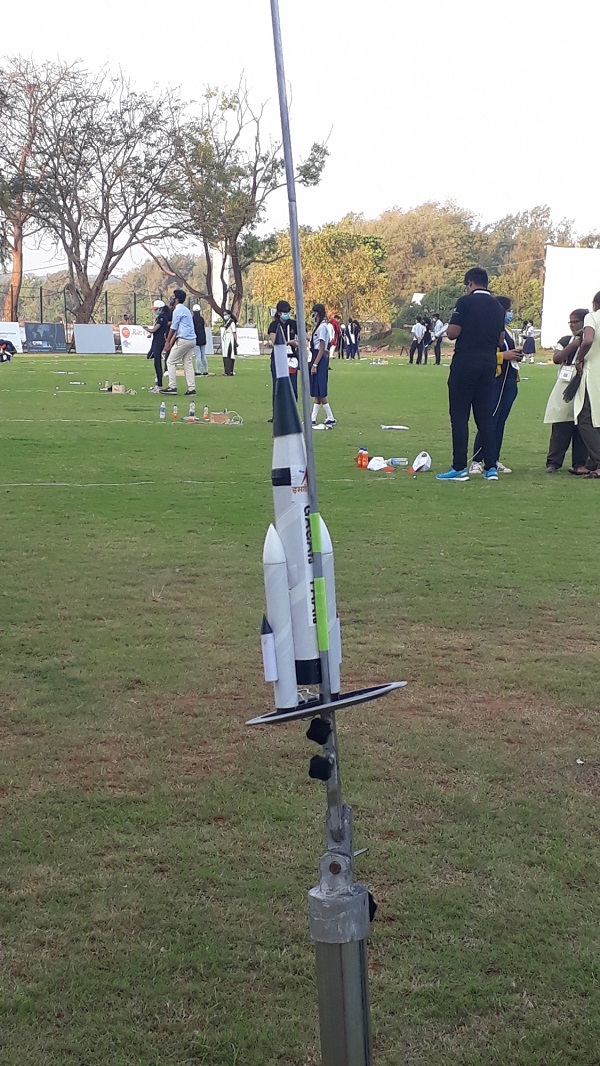Panaji, (Samajweekly) As many as 496 rocket kits — which are prototypes of Gaganyan, India’s proposed manned mission to space — assembled and launched by students from Goa schools created a Guinness World Record for ‘Most People Sending Rocket Kits Simultaneously in Single Venue’, here on Saturday.
Part of the science popularisation exercise among students under the aegis of India International Science Festival (IIFS) 2021, the event was sponsored by the Indian Space Research Organisation (ISRO).
Soon after the inauguration of IIFS, a total of 550 students sat in neat rows maintaining social distancing and embarked on assembling the kits. After the two-hour assembling session, the students took their respective rockets to the Gymkhana ground nearby, from where these rockets were launched via eight launch pads.
Amid cheering students, the rockets were launched in batches, culminating in the evening when Guinness World Records (GWR) adjudicator Swapnil Angrekar announced that 496 attempts were successful which qualified for the record.
Earlier, explaining the process of how students were trained, Mayuri Dutt, national coordinator, Guinness World Record (GWR), said, “These are all Class XI students from various Goa schools, many of them from rural areas. They were trained for two-hour sessions for four days over two weeks.”
ISRO’s Director (Capacity Building) of Programme Office, M. Sudheer Kumar, told IANS, “The model represents a GSLV variant called HRLV, i.e., Human Rated Launch Vehicle, that is going to be used in Gaganyan.”
India had originally planned Gaganyaan in the 75th year of India’s Independence. But the Covid-19 pandemic and lockdowns delayed that plan. Nevertheless, the authorities decided to get this record attempt for record.
The models that students assembled were procured through ISRO’s own startup systems, through an organisation called Rocketeers that builds and flies model rockets and works for spreading awareness about space science. It is a startup by Divyanshu Poddar, an alumnus of Indian Institute of Space Science and Technology, Thiruvananthapuram, mentored by the Department of Space.
“The models have been tested for safety and are workable models, which means they are designed to launch, which is a necessary condition for it to qualify as a science experiment for the Guinness World Record. Each model is 300 mm tall and weighs 250 gm,” he said.
The organisers are planning another Guinness record on Sunday on ‘Water Harvesting’ and yet another on Monday on ‘Space Exploration Lesson at a Single Place’.
All these events are being held as part of the IIFS 2021, a joint programme of the Ministry of Science & Technology and the Ministry of Earth Sciences along with Vijnana Bharati, an NGO working for propagation of science.










